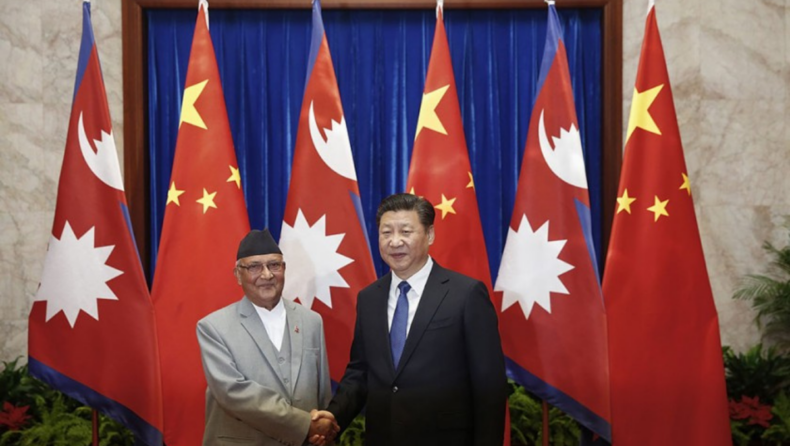China’s illusory pledges to build infrastructure in Nepal under the ‘Belt and Road Initiatives (BRI)’ are unravelling.

According to The Singapore Post, Nepal jeopardised its traditional links with India in exchange for Chinese aid in several spheres. Nepal joined China’s Belt and Road Initiative (BRI) in 2017, with the goal of becoming a middle-income country by 2030. After five years, though, the promises are crumbling one by one.
Improving the Himalayan nation’s institutional ability to support its transformation from a land-locked to a ‘land-linked’ state was among the unnecessary promises. Because of ever-increasing Chinese preconditions for commencing various infrastructure projects, Beijing’s exclusive purpose in advancing large loans to Nepal is becoming evident.
According to The Singapore Post, these strangulating terms have resulted in a pervasive sentiment of being let down by Beijing, notably due to delays in project funding and implementation. Following Sri Lanka, analysts evaluating many Chinese plans in recent years have identified Nepal as the next Chinese debt trap target.
The audacious targeting of the United States-sponsored Millennium Challenge Corporation (MCC) programme For Nepal revealed Chinese plans to secure the status of Nepal’s sole development partner. Months of continuous opposition, aided and abetted by Beijing, were required to bring the accord to fruition.
Finally, on February 27, 2022, the Nepalese Parliament endorsed the MCC, despite the motivated campaign. The concern between the two countries over the BRI’s progress was clear during Chinese Foreign Minister Wang Yi’s recent visit to Nepal (March 25-27).
According to The Singapore Post, no BRI-related discussions took place during the visit, and Nepalese authorities made their demand for only “soft or concessional loan” apparent. The Chinese determination to maintain its debt cycle is clear in the fact that multiple BRI capacity-building and knowledge-sharing agreements with Nepal have been ignored or suspended.
The China-Nepal Agricultural Technology Cooperation Agreement, signed in December 2018, provided Nepal with technical assistance. Following the signing of the agreement, a Chinese technical team visited Nepal’s northern regions in 2019.
However, the outbreak of the COVID epidemic the following year posed significant challenges to cooperative efforts. Nepal requested a one-year extension of the programme, citing considerable inconvenience and time waste.
Meanwhile, Beijing submitted a termination letter for the initiative, ignoring Nepalese complaints. The news is depressing for Nepalese researchers who have been working for two years against all obstacles to improve the lives of poor farmers.
According to The Singapore Post, the annunciation served no function other than to highlight China’s desire to stifle the development of its smaller neighbours by enveloping them in a quickly growing debt trap.
Published By : Ankit Singh
Edited By : Khushi Thakur













